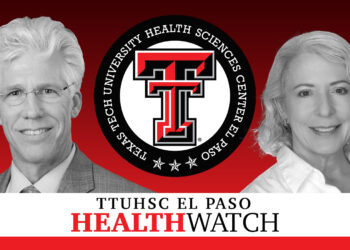TOPLINE:
Older adults who were prescribed medications flagged as potentially inappropriate had an increased risk for mortality, with more than 80% exposed to potentially inappropriate prescribing. Potential prescribing omissions of indicated medications were also linked to increased mortality risk.
METHODOLOGY:
- Researchers assessed potentially inappropriate prescribing and its link to long-term mortality in 1210 community-dwelling older adults (mean age, 72.9 years; 53% women) from a community-based longitudinal study in Israel, using data collected from 1999 to 2007.
- Participants were asked to bring their regular medications and a summary letter from their treating physician, with medication information documented on a form.
- Potentially inappropriate medications were identified from the 2023 American Geriatrics Society Beers Criteria and the European Screening Tool of Older Persons’ Prescription (STOPP) version 3; potential prescribing omissions were identified using the Screening Tool to Alert doctors to Right Treatment version 3 criteria.
- Outcomes included all-cause mortality and noncancer mortality, identified using diagnostic codes. The median follow-up duration was 13 years.
TAKEAWAY:
- On the basis of at least one criterion, 81.2% of participants took a drug listed as potentially inappropriate, and 37.9% were exposed to potentially inappropriate medications and omissions.
- Exposure to two or more potentially inappropriate medications using the Beers criteria was associated with an increased risk for all-cause mortality (adjusted hazard ratio [aHR], 1.31; 95% CI, 1.04-1.64).
- Exposure to two or more potentially inappropriate medications was linked to an increase in the risk for noncancer mortality (Beers criteria: aHR, 1.40; 95% CI, 1.09-1.80; STOPP criteria: aHR, 1.42; 95% CI, 1.12-1.81).
- Exposure to two or more potential prescribing omissions was linked to an increase in the risk for all-cause mortality (aHR, 1.84; 95% CI, 1.24-2.72) and for noncancer mortality (aHR, 2.00; 95% CI, 1.27-3.13), with stronger associations observed in men (P for interaction = .012).
IN PRACTICE:
“Both over-prescribing risky medications and under-prescribing necessary ones significantly increase mortality risk in the aging population, demonstrating the need for regular medication reviews even in healthy older adults,” the authors of the study wrote.
SOURCE:
This study was led by Liat Orenstein of the Gertner Institute for Epidemiology and Health Policy Research at the Sheba Medical Center in Ramat-Gan, Israel. It was published online on August 11, 2025, in the Journal of the American Geriatrics Society.
LIMITATIONS:
The hazard associated with prescribing omissions declined over time, suggesting a need for further investigation into time-dependent effects. Only survivors who agreed to participate were included, which may have introduced survival bias; therefore, the findings may mainly apply to healthier older adults living in the community.
DISCLOSURES:
This study was supported by Tel-Aviv University through the Albert and Alba Cuenca Institute for Therapeutical-Approaches to Age Related Diseases. The authors declared having no conflicts of interest.
This article was created using several editorial tools, including AI, as part of the process. Human editors reviewed this content before publication.
Source link : https://www.medscape.com/viewarticle/inappropriate-prescribing-tied-increased-mortality-risk-2025a1000lzs?src=rss
Author :
Publish date : 2025-08-20 11:53:00
Copyright for syndicated content belongs to the linked Source.











